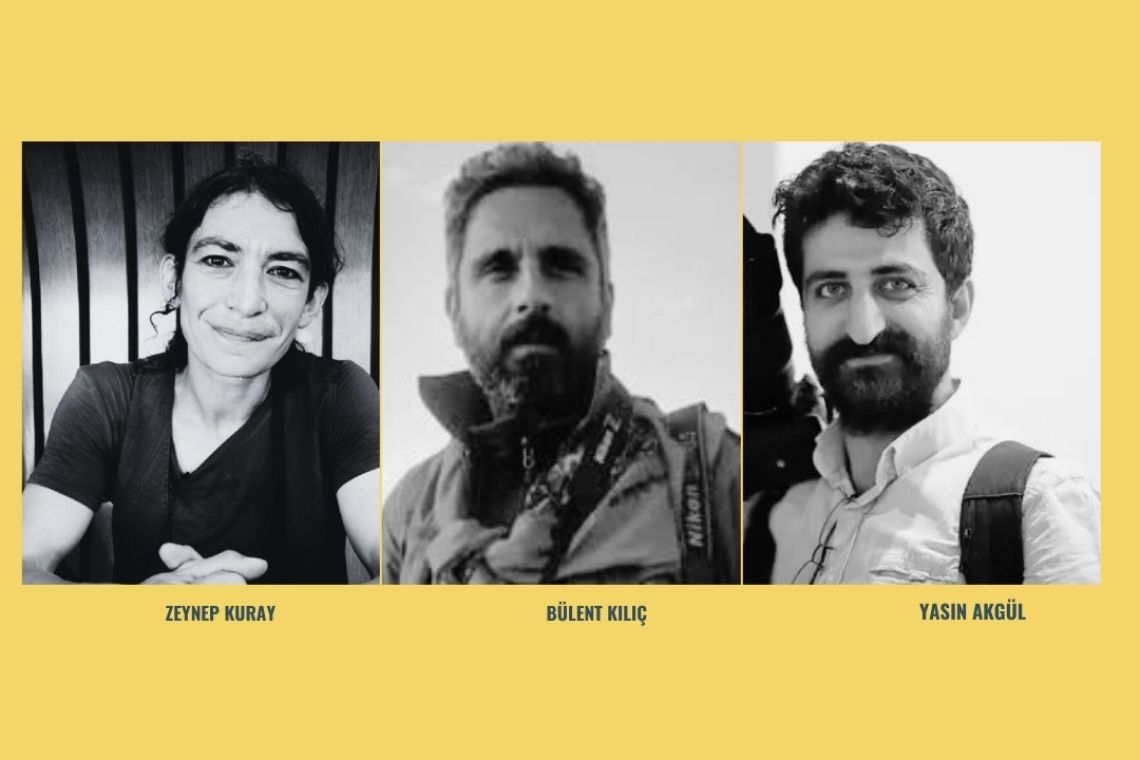The Media and Law Studies Association (MLSA) has filed an appeal against the pretrial detention of three journalists—freelance reporter Zeynep Kuray, AFP photojournalist Yasin Akgül, and photojournalist Bülent Kılıç—who were arrested in Istanbul on March 25 while covering protests. The appeal argues that the journalists were treated as protesters despite only performing their professional duties, and that their arrests violate press freedom and fundamental rights.
All three journalists were among seven detained by Istanbul’s 6th Criminal Judgeship of Peace on charges of violating Law No. 2911 on public demonstrations, after covering protests that began following the March 19 detention of Istanbul’s opposition mayor Ekrem İmamoğlu. In its appeal, MLSA emphasized that the journalists held valid press credentials and were in the field solely to report. The only piece of evidence cited against them was a single photograph—taken without their camera equipment visible—and none were detained at the scene of the protest but rather in police raids on March 24.
The appeal argues the detentions are not only a violation of press freedom, but also of the right to liberty and security, the right to a fair trial, and the right to peaceful assembly. It further states that the court failed to consider alternative measures, such as judicial control, and that treating journalists as protesters creates a chilling effect on the profession.
“They were first told they’d be released, then sent for arrest”
MLSA’s co-director, lawyer Veysel Ok, called the detentions a legal crisis. “Yesterday, we witnessed one of the biggest legal breakdowns in Turkey’s judicial history,” he said, referring to the March 25 proceedings. According to Ok, a handwritten list of journalists to be released under judicial control was posted around 11 a.m. at the courthouse, including the names of the now-jailed journalists. But two hours later, prosecutors reversed their decision and sent the journalists to the court with a request for arrest.
“This is a violation of both the right to a fair trial and judicial independence,” Ok said. “The Justice Ministry must explain the motivation behind this sudden reversal.” He added, “In our appeal, we made it clear that these individuals are not protesters but journalists with press cards. Even if they were protesters, peaceful demonstration is a constitutional right in Turkey.”
“Only one photo used as evidence, and cameras are not visible”
All three journalists were arrested in early morning raids on March 24 and interrogated at the Anti-Terror Branch of the Istanbul Police. During questioning, police showed each of them a single photograph, accusing them of participating in a protest banned by the Istanbul Governor’s Office. The journalists explained they were present solely to cover the events and had no affiliation with any protest group. Lawyers noted that the photographs shown as evidence were deliberately selected so that cameras and equipment were not visible.
“No justification given for rejecting judicial control”
The appeal petitions also point out that the court failed to explain why judicial control measures—such as travel bans or regular check-ins—would be insufficient, contrary to the case law of Turkey’s Constitutional Court. MLSA emphasized that pretrial detention must be a last resort and that none of the three journalists posed a flight risk. All have fixed residences, their professional activities are documented, and the evidence against them is weak.
“Criminalizing journalism”
In the petitions, MLSA underlined that all three journalists published news content using the photos they had taken on the day of the protest, showing that their actions were strictly professional. The lawyers argued that detaining journalists after the protests, rather than at the scene, only reinforces the fact that they were not engaging in disruptive or unlawful behavior.
The use of a single photo as the basis for a criminal charge, without any evidence of violence, resistance, or misconduct, was described as disproportionate. “These arrests are a form of criminalizing journalism,” MLSA stated.
The legal team is now awaiting a ruling on the appeal, hoping the courts will reverse what press freedom advocates have described as a troubling precedent for journalism in Turkey.



